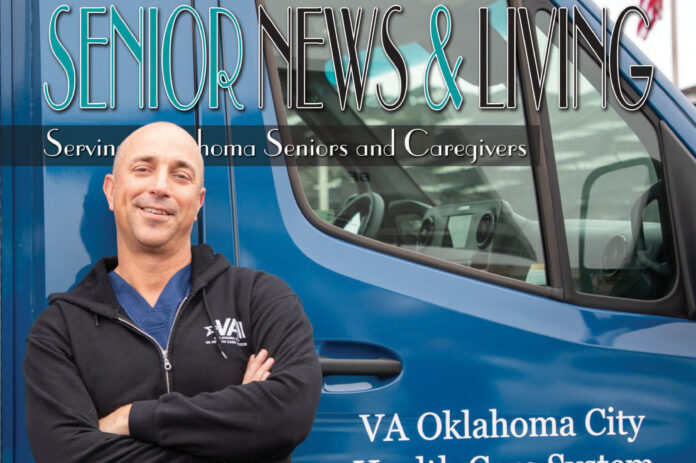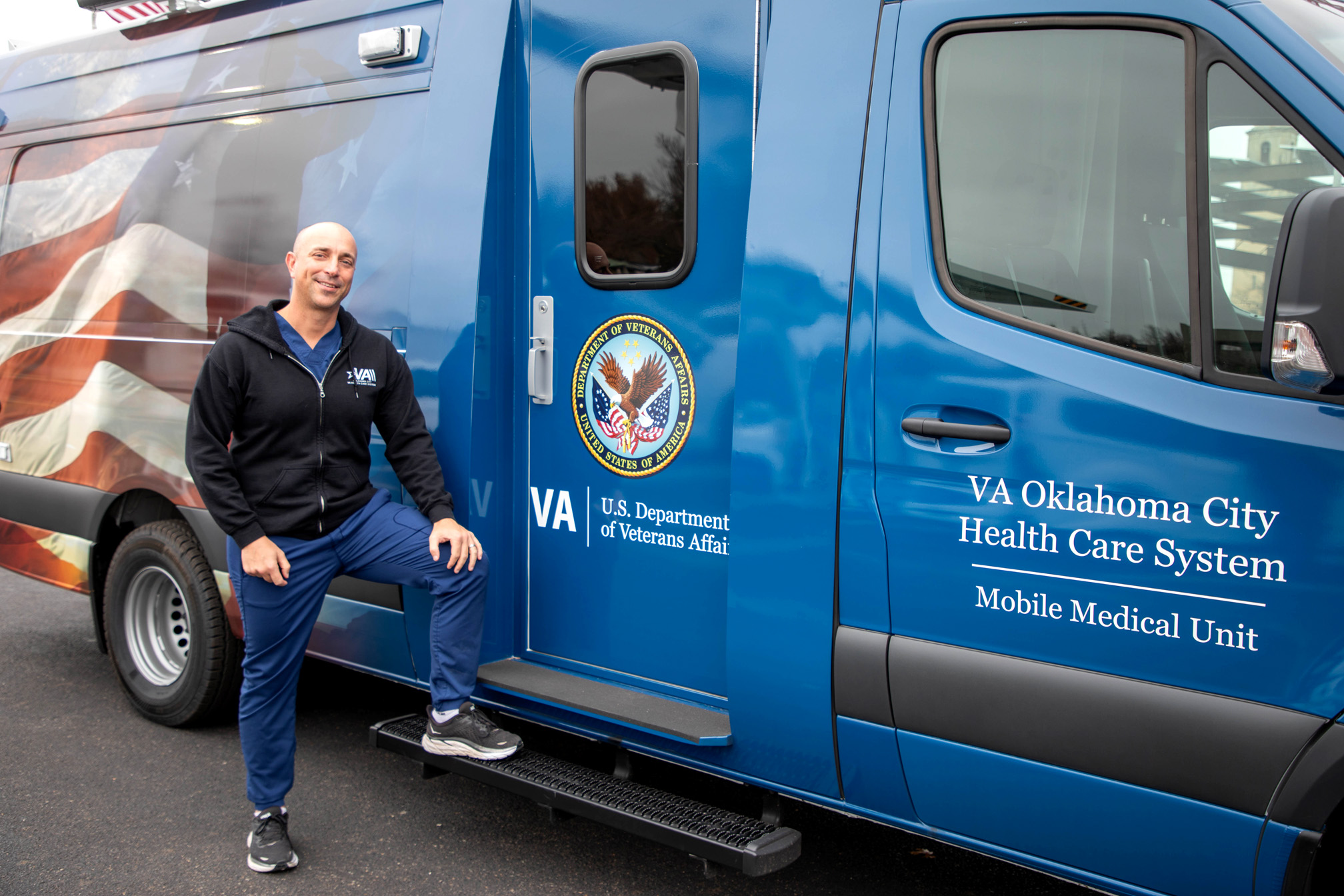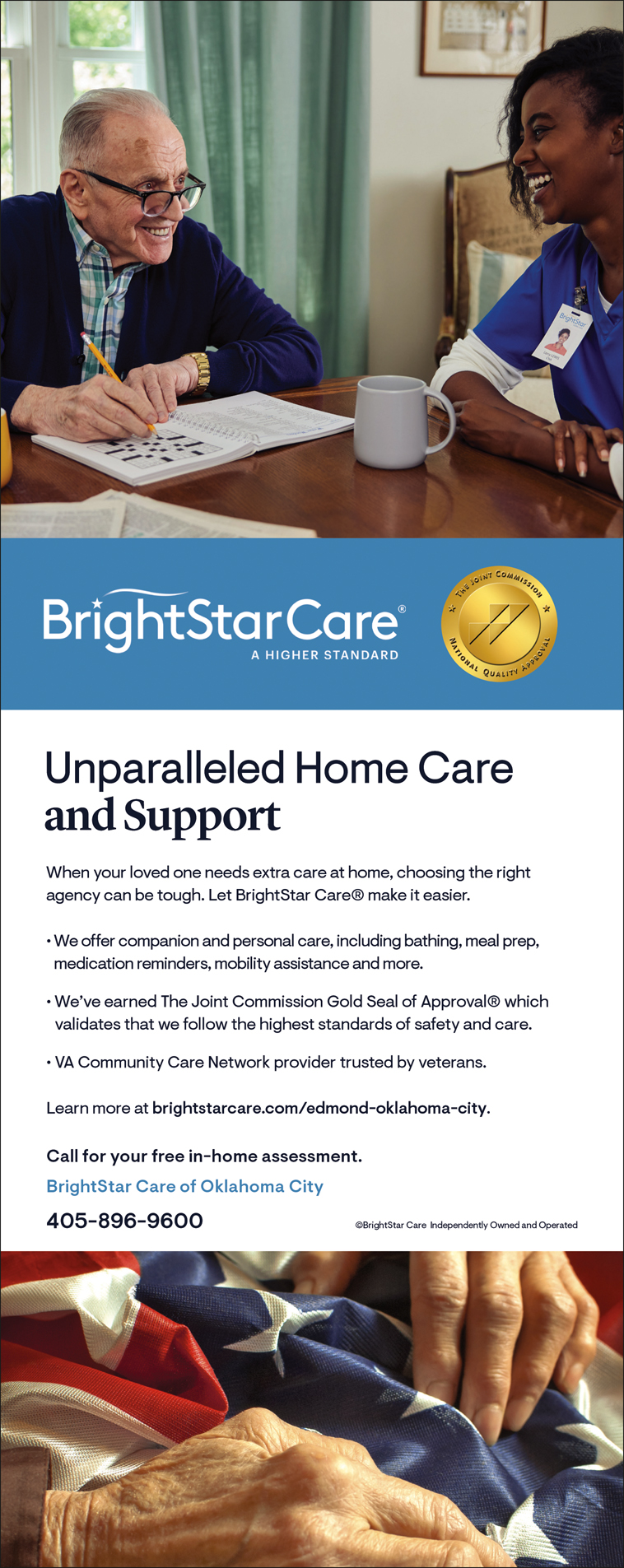Wade Vlosich
OKC Veterans Administrator Healthcare System director.
Story by Van Mitchell, Staff Writer
The Oklahoma City Veterans Affairs Oklahoma City Healthcare System has become the fastest-growing VA in the nation, according to Fiscal Year 2023 statistics.
Wade Vlosich, OKC VA HCS director, attributes the rapid growth to community engagement and outreach efforts, particularly to isolated Veterans.
“Many Veterans are not sure if they are eligible for VA healthcare,” Vlosich said. “We have traveled to remote locations to personally reach out to our Veteran population and provide answers to their questions through our PACT Act resource fairs.”
In August and September of this year, Vlosich said OKC VA averaged about 22 new registrations a day.
“Overall, this fiscal year, we saw 13,994 first-time users, which was 18 percent of our overall users within the Oklahoma City VA,” he said. “That is about a 20 percent increase over the last four years, when most other VA facilities average between 1-3 percent annual growth.
Vlosich said keeping up with established patients with so many new patients coming in presents a challenge, but the facility is also expanding and growing to meet all satisfaction and clinical care needs.
With new equipment arriving and construction constantly happening, Vlosich is often seen in scrubs instead of a suit as he inspects new specialty and construction areas throughout the downtown facility.
Expansion is the primary focus for this health care system which includes Community-Based Outpatient Clinics (CBOC). The VA now has two clinics in North OKC, including one that provides dental care.
VHA implemented these clinics to make access to health care easier. These clinics provide the most common outpatient services, including health and wellness visits, without the hassle of visiting a larger medical center. VHA continues to expand their network of CBOCs to include more rural locations, making access to care closer to home. One of its newest rural clinics is in Shawnee, OK.
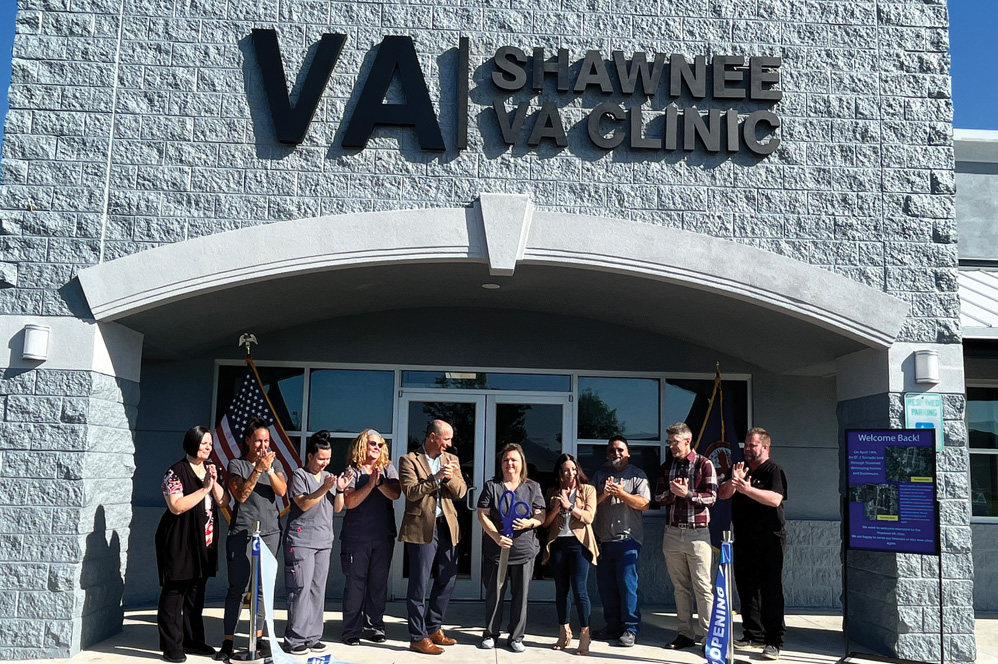
“Oklahoma City (VA) has grown by 22 percent total since 2019,” Vlosich said. “We’re growing so rapidly, and we’re trying to build all these new clinics. For instance, new clinics are pending approval to be built in Woodward and we’re expanding our Stillwater and Yukon clinics.”
Another area of growth is occurring among this facility’s female Veteran population. Expanded services for women now include a mammography clinic and plans to build a new women’s only stand-alone clinic.
Other plans include securing facilities for inpatient services, substance abuse treatment and long-term care as well as opening a Fisher House for Veterans’ families.
Vlosich said the VA has acquired the former Norman Specialty Hospital near the corner of Robinson Street and Berry Road to convert into a new VA hospital, and is redesigning the facility to meet both the inpatient substance abuse and skilled nursing facility building requirements.
The new hospital will have 53 beds — 26 for skilled nursing, and 26 for inpatient substance abuse treatment — and serve up to 78,000 veterans who live in the Oklahoma City area.
The 26 substance abuse beds will be used for the highest level of rehabilitation services for patients who are diagnosed with alcohol or drug addictions or substance use disorder.
“One of the things that some of our younger and older veterans face is substance abuse treatment issues,” Vlosich said. “We’re building a substance abuse treatment facility in Norman to help with that. There are none in the state of Oklahoma right now.”
Vlosich said homelessness with Veterans is a growing problem in Oklahoma.
OKC VA HCS previously launched a mobile medical unit to treat the homeless population and even established their own ambulance service.
“We’ve got a great homeless program here in Oklahoma City,” he said. “We are the second VA in the nation to get a mobile homeless van. We call it MMU, Mobile Medical Unit, and they travel around different areas providing healthcare to homeless veterans at their homeless camps or the homeless shelters because a lot of them don’t want to come in, they have mental health issues or other things. We’ll drive out there and provide medical care to our homeless veterans and bring the van back in.”
Vlosich said the OKC VA HCS continues to work with the Housing and Urban Development (HUD) and Veterans Affairs Supportive Housing (VASH) Programs to expand their capabilities.
The goal of OKC VA HCS leadership is to eliminate Veteran homelessness by providing shelter, transitional and permanent housing to Veterans to those who need it the most. Some examples are providing employment and different legal services through the Veterans Justice Outreach program.
Throughout 2022, VA staff helped Veterans find permanent housing such as apartments or houses that Veterans could rent or own, often with a subsidy to help make the housing affordable. VA staff also helped some Veterans end their homelessness by reuniting them with family and friends.
Vlosich said Veterans have another tool with the VA Health Chat which allows Veterans to immediately connect with VA health care clinicians over text-messaging.
The VA Health Chat App provides easy, online access to chat with VA staff when you have minor health questions, want to schedule an appointment, have a non-life-threatening health concern, and more.
“We’ve instituted an app now that if you need to talk to somebody in our community care office, you can go online and chat with them through the app as opposed to spending 30, 40 minutes on the phone. It’s easier,” he said.
Vlosich said the Promise to Address Comprehensive Toxics (PACT) Act is one of the largest VA Health Care expansion programs and extends eligibility for Veterans who have been exposed or possibly exposed to toxic environments while serving in Vietnam, Gulf War, and post-9/11 eras.
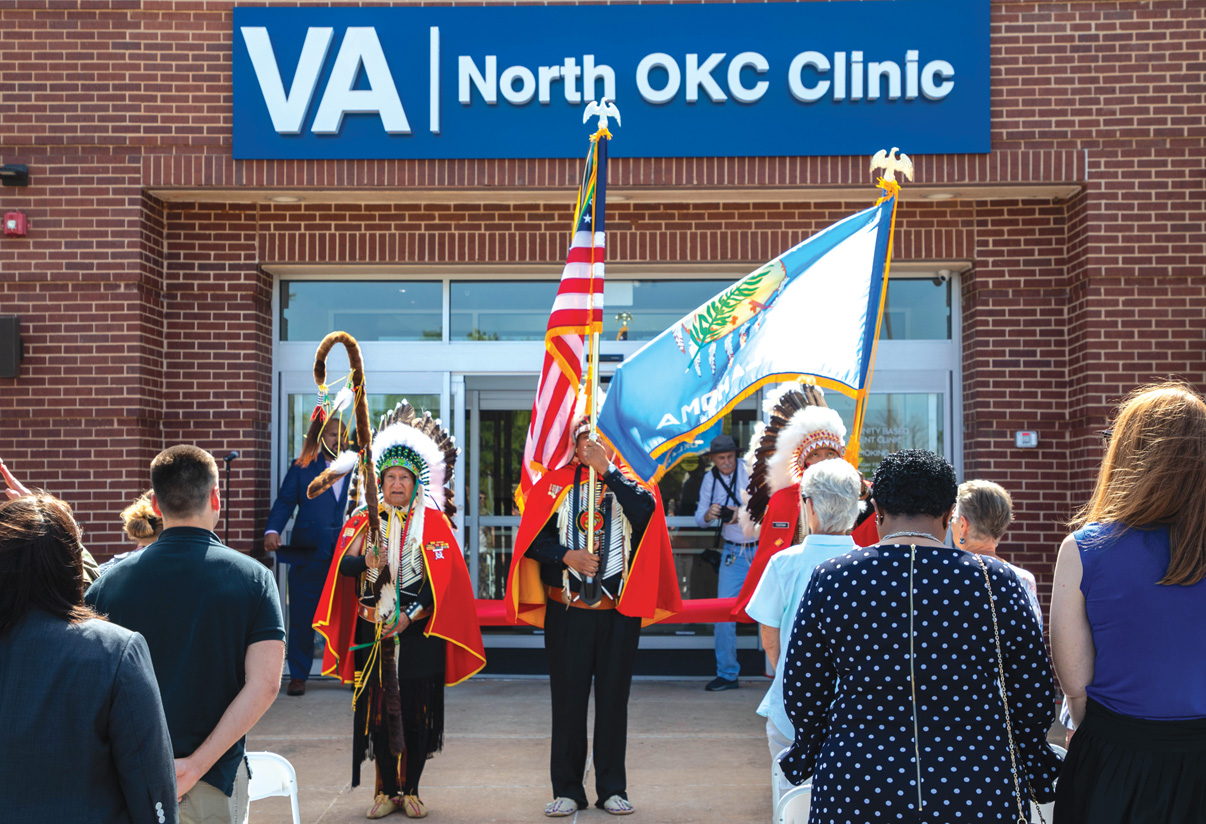
Over the last year, Indian Health Service (IHS) and The Department of Veteran Affairs have partnered together, holding PACT Act outreach events across Oklahoma. This joint effort has assisted Tribal, non-Tribal Veterans, and Veterans in rural areas to receive healthcare services, education, and other benefits they deserve.
Vlosich said hiring fairs and recruitment incentives have helped bring new employees on board.
“On average, we’re bringing on about 30 to 40 staff members every two weeks just to meet demand,” Vlosich said. “We’ve added new primary care teams for most of our community-based outpatient clinics.”
Vlosich also acknowledged the efforts of current employees during this season of growth. He said OKC VA employees have stepped up to meet Veterans’ needs.
“They’ve worked overtime,” he said. “During COVID, we had employees spending the night in the hospital just to take care of our Veterans. We appreciate their dedication because, without them, many could go without healthcare, and our Veterans are our most precious resource.”
For more information on the PACT Act see the press release on page 11.


